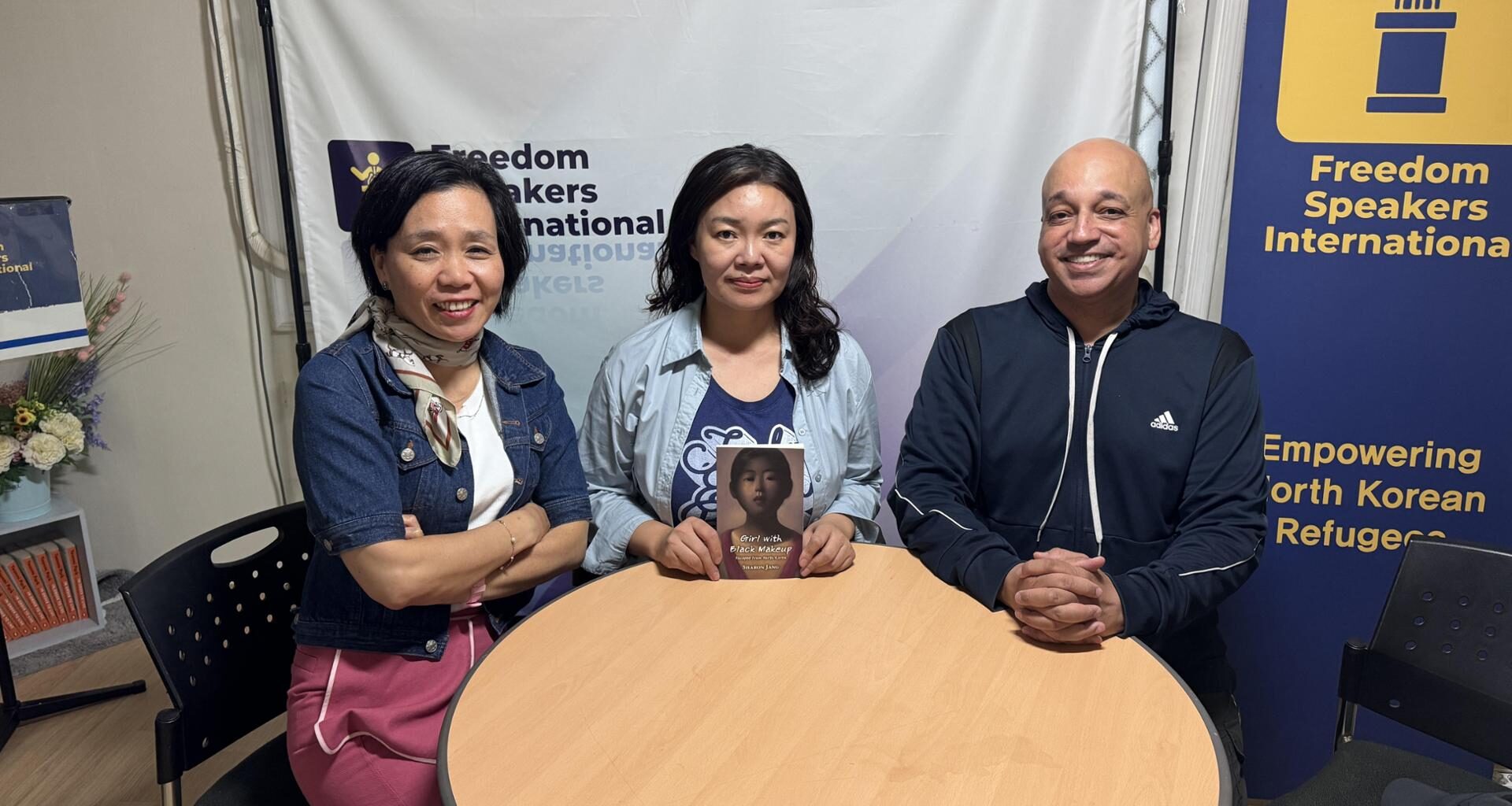The tears came without warning. I was sitting on a packed subway train reading a book in English by a fellow North Korean refugee when suddenly I found myself crying in front of dozens of strangers. I fumbled for tissues in my bag, aware of the startled looks from passengers around me, but I couldn’t stop.
The book is “Girl with Black Makeup” by Sharon Jang. I learned that Sharon’s grandfather was a South Korean soldier captured near the end of the Korean War. Because of this, he, his children, and grandchildren — including Sharon — were condemned to work in North Korea’s infamous coal mines. She lived a difficult life that was disadvantaged even compared to other North Koreans until she escaped in 2011 and arrived in South Korea in 2012.
For days after finishing the book, the pain in my heart was so sharp that I felt the slightest touch would make me burst into tears again. What was this uncontrollable emotion? What did these tears mean? I kept thinking about it as I reread the book.
I’ve often shared stories with other North Korean defectors and found common ground in our experiences. But I had never looked so deeply into one person’s life, laid out in such raw detail. The author held nothing back. If she were sitting beside me, I would want to hold her tightly. I wanted to cling to her and wail together.
How much suffering must she have endured? One image stays with me: a teenage girl covered in coal dust, crying black tears. When she described even her blood seeming black, it reminded me of the children I once saw at the marketplace, selling coal. I realized I wasn’t the only one who suffered. There were many who endured pain just like me.
This book helps me see beyond myself and understand others. A teenage girl left to care for her younger sibling while watching her drunk father after her mother’s departure — I endured nearly the same situation. Through this book, I found experiences so similar to mine, stories I had rarely heard directly from anyone else. I felt a deep sense of solidarity. It reaffirmed my conviction that the work I do for North Korean human rights is truly the right path.
I escaped from North Korea in 2003. After being trafficked in China, I finally arrived in South Korea in 2007. I settled down and worked as a nurse for more than a decade before entering graduate school. Sharon and I now both advocate for North Korean human rights and tell our stories as Keynote Speakers of Freedom Speakers International, which published her book.
Why did we, out of all the countries in the world, have to be born in North Korea and go through such heartbreaking experiences? Why are these things still happening while we stand helplessly watching? When I hear people in the free world say that life is hard here, I still cannot understand it. To me, it feels like words of the well-fed.
Sharon’s book gave me permission to feel these things fully. Reading her story helped me understand my own more deeply. To remember without apologizing. To cry on a crowded subway without shame. To recognize that our stories matter. We are not alone in our suffering, and we are not alone in our healing.
Kim Su-jin escaped from North Korea in 2003 and arrived in South Korea in 2007. She is now a Keynote Speaker with Freedom Speakers International (FSI). This article was translated from Korean to English by FSI co-founder Lee Eun-koo and edited by FSI co-founder Casey Lartigue Jr.
